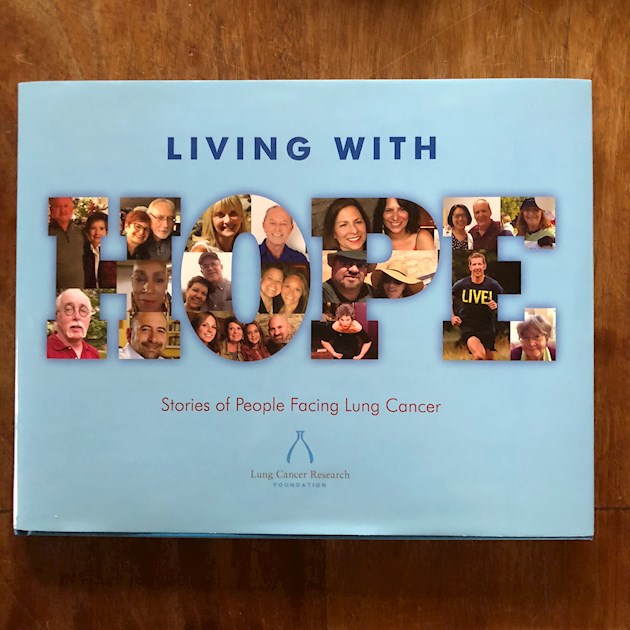“Lung Cancer Leadership Conference” - that is an intriguing title for a conference. Free to Breathe has held this conference for several years. The event was not offered in 2017, as Free to Breathe and the Lung Cancer Research Foundation (LCRF) merged, but it was back this year, and I was invited to attend. On February 8 I flew to Atlanta to join other lung cancer advocates for three days of learning and fellowship.
This conference was both similar to and quite different from other lung cancer conferences I’ve attended. There were excellent presentations on the treatment advances made in the past several years and outlining the treatment paths currently available to patients. A panel of researchers, some of whom had received research grants from either Free to Breathe or the Lung Cancer Research Foundation, talked about the work they are doing and the challenges of doing research, plus answered some questions from the audience. The inimitable Chris Draft gave an inspiring keynote where he challenged us to build support by letting go of anger over lung cancer’s stigma, and focusing on the people who are affected by the disease; to paraphrase, “people don’t care about lung cancer, they care about you.”
The main focus of the conference was how to raise money, and most of the people attending were not survivors like myself. They were people who had lost loved ones to lung cancer and who channeled their grief into raising money for research. As an example, at one table I joined, we had six people sharing our stories and ideas, and I was the only survivor. Four people had lost family members to lung cancer, and one worked with patients.
I’ve had a taste of professional fund-raising techniques in the past, and have no doubt that we were presented with really solid, field tested ideas about how to raise money. The fundamental principles are not complicated. Walk your talk by making a self-donation. Just ask, and say “I need your help.” Use the tools available to make it as easy as possible for others to give. Be gently persistent and follow up. Successful fundraising circles back to the point that Chris Draft was making: people support people and the causes they believe in, not causes alone. As one of my bosses used to say, “It’s all relationships”.
There is no doubt that the LCRF does a great job of both raising money and funding lung cancer research. Since 2001, the LCRF and Free to Breathe together have given $34 million to fund 342 research grants. The focus is on funding young researchers, who often go on to receive larger grants from major funders like the National Institutes of Health. Getting funding and getting established are major challenges for young researchers, who aren’t going to be able to go straight from a post-doctoral fellowship to getting a big grant. The LCRF and similar organizations play a vital role in the professional development of the brilliant researchers we need to find new treatments and, eventually, a cure.
At the special dinner held on the first night, we all got a special, unexpected surprise: copies of a beautiful book, Living with Hope, telling the stories of 17 people who are living with lung cancer. I was honored to be asked to be part of this project. Several of the people in the book were at the conference, and we had a lot of fun asking each other to sign our books.
If this sounds like a conference you would like to attend, keep your eyes open for announcements of future LCRF events.
